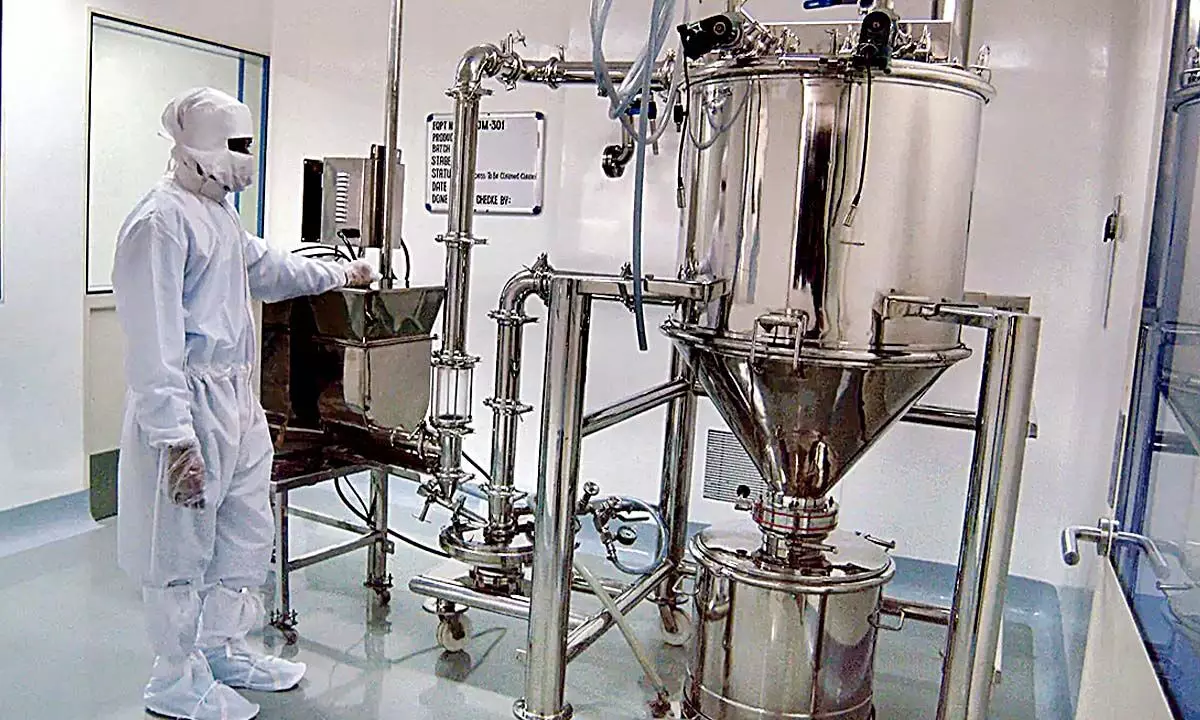R&D in pharmaceuticals gets PRIP and ICPMR boost
The Centre’s focus on enhancing healthcare infrastructure in the country comes in the nick of time
image for illustrative purpose

Moreover, there always was a need for a R&D council under NIPER scheme as there are so many institutions outside the administrative control of DoP, which has the mandate only for inter-departmental coordination. The announcement of providing investment and setting up centres of excellence will steer India onto the value chain in the life-sciences sector
In what will prove to be a path-breaking initiative to promote research and innovation in pharmaceutical and medical devices sectors, the Department of Pharmaceuticals (DoP), under the Union Ministry of Chemicals & Fertilisers, is all set to launch ‘Promotion of Research and Innovation in Pharma-MedTech Sector’ (PRIP), a new scheme that will an outlay of Rs 7,150 crore spread over for a five-year period. Besides this, it is also setting up an Indian Council of Research & Development and Innovation in Pharma-MedTech Sector (ICPMR), which will on the lines of Indian Council for Medical Research (ICMR) and Indian Council for Agricultural Research (ICAR). These two played a pivotal role in their respective spheres and ICPMR is expected to push the pharma sectors.
It should be recalled that Union Finance Minister Nirmala Sitharaman in her Budget speech for 2023-24, had indicated about a new programme to promote research and innovation in pharmaceuticals through centres of excellence. In an instant follow-up, DoP has sent a proposal to the Economic Finance Committee (EFC) for the PRIP scheme having two components--one being the need to strengthen the research infrastructure by establishing seven exclusive seven Centres of Excellence (CoEs) at National Institutes of Pharmaceutical Education and Research (NIPERs) while the second one is aimed at encouraging research in six moonshot areas like new chemical entities, complex generics including biosimilars, medical devices, stem cell therapy, orphan drugs, and antimicrobial resistance. Towards these, financial assistance will be provided to companies working with government institutes and for in-house R&D.
There is no doubt that the move to give fillip to R&D in pharma is a welcome decision. It also makes it clear that the Union government is focusing on enhancing healthcare infrastructure. It will encourage industry to invest in research and development in specific priority areas.
The thrust on R&D will help India become a leader in pharmaceutical innovation on the global stage. Moreover, there always was a need for a R&D council under NIPER scheme as there are so many institutions outside the administrative control of DoP, which has the mandate only for inter-departmental coordination. The announcement of providing investment and setting up centres of excellence will steer India onto the value chain in the life-sciences sector. Moreover, research-oriented incentives and policies can enable the Indian pharmaceutical industry to become the R&D, bio-innovation and bio-manufacturing hub of the world.
The seven CoEs under PRIP scheme will strengthen the foundation of research and development in pharmaceutical and medical device sector in the country, which is lagging behind compared to several.
Now, the DoP has made a draft Cabinet Note on the new scheme and has sent for consideration of the Empowered Technology Group (ETG) for approval. ICPMR is the need of the hour as it can enable DoP to pursue uninterrupted promotion and coordination in the Pharma-MedTech field.
It is sure the country needs support in high end therapeutics and medical devices. These new initiatives will help in boosting research and innovation in pharmaceutical and MedTech sector thereby helping India become a leading power in development of new drugs and technologies, reduce import dependency, generate employment in the sector and help in realizing the vision of ‘AtamaNirbhar Bharat’ in pharmaceutical and medtech sector.
(The author is freelance
journalist with varied experience
in different fields)

